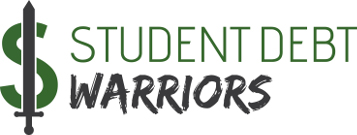This post may include affiliate links. Please read the disclosure at the bottom of our “About” page to learn more about our affiliate program.
College graduation.
It’s one of the most exciting, terrifying days of any college student’s life: The day that you put aside your books and papers and cheap beer, claim your diploma, and enter the “real” world as an educated member of society. If you’re a recent or soon-to-be college graduate, congratulations. You’ve earned it. You can finally land your dream job, start making a lot of money, and enjoy the easy life.
Haha, I kid of course. To be completely honest with you, the next few months and years of your life are bound to be scary, confusing, and probably not at all like you imagined they would be when you first entered college as a freshman. I hate to break it to you so bluntly, but that’s just how life works.
College is great for teaching you a lot about a subject (or a group of subjects) that you’ll hopefully be able to put to use during your career. But one area where college—and high school—generally fall really short on is teaching students about how to handle their personal finances. Which is a pretty bad thing, considering most college students in the US graduate with at least some form of student loan debt.
Need help keeping track of your student loans? Download our free Student Loan Spreadsheet!
I don’t know about you, but in my mind, if an institution is going to saddle me with debt under the premise of “educating” me, I would hope that they would educate me on how to pay off those loans and generally succeed in the arena of personal finance.
But because most universities don’t cover the subject, I wanted to pull together a quick list of financial tips that college students can reference and use to get a handle of their personal finances. A lot of these have to do with paying off your student loans, but there’s some general personal finance advice in here too.
Without further ado, here are 10 personal finance tips that all college graduates should know.
1. Start keeping track of your student loans.
If you haven’t already begun keeping track of your student loans, this is one of the very first things you should do. All it takes is an hour of your time to create a student loan spreadsheet, which you can then reference any time you need information about your student loans. Interest rate? Lender or servicer name? Monthly payment amounts? It’s all right there. Just do yourself a favor and get it done.
2. Start an emergency savings fund.
No matter what anyone tells you, emergencies happen to the best of us. They’re just a part of life, and there’s no way that you can prevent all of them all of the time. But the good news is, by building an emergency fund, you can prepare for them. If you don’t have any emergency savings, aim to put aside $1,000 specifically for emergencies, and once you hit that goal, increase the balance of that savings account until it has 3 to 6 months’ worth of expenses in it (however much makes sense for your personal financial situation). That sounds like a lot of money—and let’s be realistic, it is—but having that money set aside is crucial to allowing you to avoid relying on expensive credit card debt when an emergency does strike.
If you want to keep your emergency savings growing while secure, check out this article with some tips for how to get the most growth out of your emergency savings.
3. Choose a student loan repayment plan that works for your financial needs and goals.
If you’ve got student loans, then you need to come up with a plan of action ASAP to make sure that you can pay them off as quickly and cheaply as possible. The good news is, there are a number of different repayment strategies that you can use to get rid of your debt. All you need to do is pick one that works for you. Here’s an article where we discuss 3 student loan repayment strategies that you should consider.
4. Start making payments on your student loans immediately.
Yes, if you’ve got federal student loans then you’ve got a grace period of six months where you don’t need to make any payments. But if you can, you should, and for one simple reason: Unless you have subsidized federal student loans, interest is going to continue to accrue during those six months. And if you can’t pay it off at the end of your grace period, it will become capitalized—added to your principle—which means you’ll be paying interest on top of your interest.
So, in the least, you should aim to make interest-only payments on your student loans during your grace period. If you can pay more, great—that just means you’ll pay off your loans faster and with less interest!
5. Take any job you can.
When you graduate, you might have a dream job in mind. You might have wanted to work in a certain field or a certain industry for all of your life. But if you’re having a hard time landing that dream job, I’m going to be blunt with you: Take ANY job you can get so that you have some income that you can use to begin paying back your student debt. Whether that is working in a grocery store, being a freelancer, or shoveling shit, you get yourself a job ASAP.
Continue applying or those dream positions, get yourself some internships if they help, but make sure you have some money coming in first. If not, you’re going to have a hard time dealing with all of that capitalized interest (see #4 above).
6. Pay as much as you can.
If you want to be debt free, you’re going to need to put as much money into your debt repayment as possible. The more you can put in now, the more money you’re going to save over the life of your loan; it’s as simple as that. And because you’re a recent college graduate, it’s a pretty safe bet that you don’t have a lot of the responsibilities that you’ll soon have, vying for your attention (and money): Think, a spouse, kids, a house, etc.
Looking for ways to plow as much money as possible into your student loans to pay them off faster? Here are six amazing strategies to try.
7. Don’t forget about investing for long-term goals.
Do you ever plan on retiring? Do you hope to one day have a house, or take an amazing trip around the world? If so, you need to start saving and investing for those long-term goals now. Yes, you should be focused on paying off your student loans, but you should also keep your future in mind. There’s no reason that you can’t do both.
And it’s so easy to get started. From Acorns to Stash to Personal Capital and more, there are so many personal finance apps that make getting started investing easier than it’s ever been before. You really have no excuse to be sitting this out.
8. Consider refinancing your student loans.
If your credit score has substantially improved since you first took out your student loans or interest rates have fallen, then you should take a serious look at whether or not refinancing your student loans makes sense. If you are a good candidate for refinancing, it could save you thousands of dollars in interest and make paying your loans back a lot easier.
That being said, refinancing federal student loans means giving up some powerful benefits, so you need to consider the pros and cons of refinancing before you decide either way. Lendedu is one free service that I used to compare rates and decide whether or not refinancing made sense for me, and I recommend it to all of you.
9. Make an effort to learn about personal finance!
If you want to really OWN your personal finances, then you’ve got to make at least some effort to learn about the subject. And no, that doesn’t mean taking classes or signing up for lectures (though you can if you want!). All it means, honestly, is finding some good, trustworthy resources and reading everything they write. That’s how I learned.
If you’re looking for some great personal finance-focused websites to learn the basics, these are my all-time absolute favorites.
10. Just take it one step at a time.
Alright, so I know all of this probably sounds a little overwhelming. Between paying off your student loans, saving for emergencies, and investing for the future, you’ve got a lot of your plate. So how do you handle it? Easy: Just one step at a time.
Becoming financially healthy and debt free doesn’t happen overnight, unless you’re incredibly lucky. For the rest of us, all it takes is time and a commitment to doing our best. Yes, you’re going to make some mistake. You’ll stumble, you’ll fall. As long as you get back up and keep doing your best, then you will be able to do this. I promise you.
So if you feel overwhelmed, just look at the smallest thing you can do, and do it. And then move onto the next. Success begets success.






